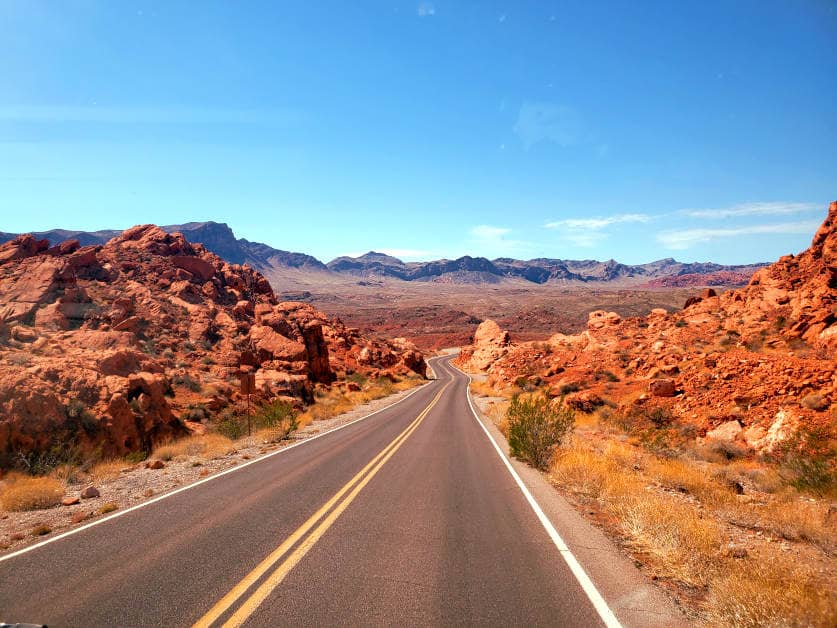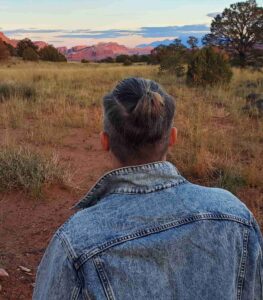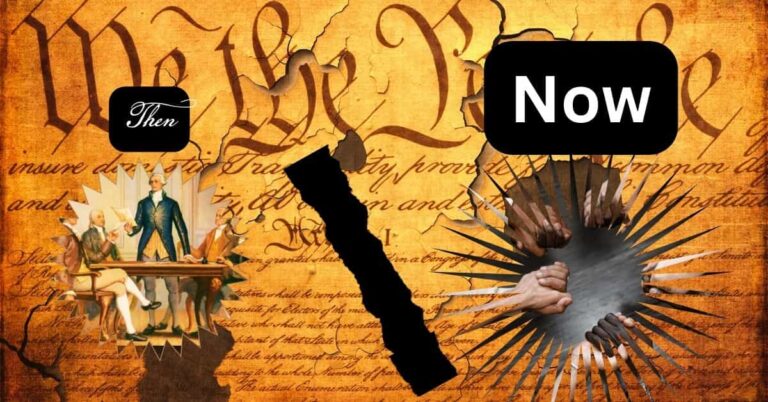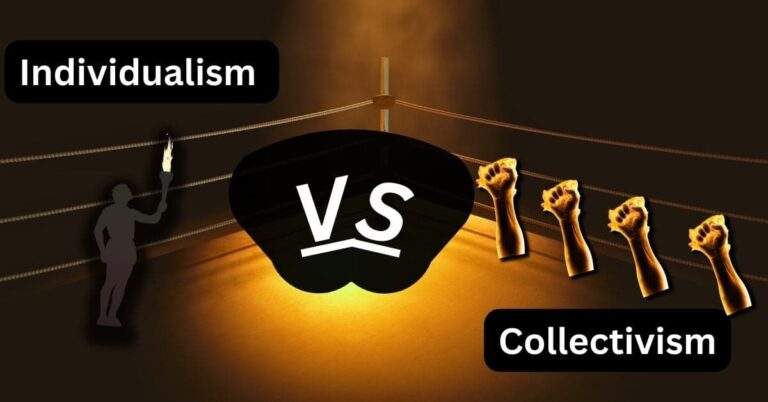The Bureau of Land Management maintains over 245 million acres of undeveloped land in the Western United States. People associate vast open spaces with absolute freedom from any authority. Being further away from population centers guarantees more autonomy.
Absolute freedom is a theoretical term used to describe what life would look like without authority. Idealists believe that there are no laws, no restrictions, and no consequences for actions.
As a staunch liberty supporter, I would like to believe in unrestrained freedom. Yet, I know it is not theoretically possible in modern society. Why is that? Read further…
Absolute Freedom Defined
Most people classify “absolute freedom” as a fanatic-or diehard- view of freedom.
What is the worst that could happen when people have unchecked restrictions to do as they please?
People automatically think of the worst human tendencies possible if absolute freedom became a reality.
If you have ever seen the movie The Purge, this is a Hollywood fantasy that illustrates the worst of society.
In the movie, you don’t have emergency services for 24 hours. People can act in any manner they choose–no consequences for those 24 hours.
The theory in the movie is that if you have enemies, you can eliminate them without fear of punishment. Yes, that means kill them.
Don’t mistake me. I am NOT advocating that people go and commit these atrocities. I am giving an extreme example what the public believes absolute freedom to be in a modern worst-case scenario.
In the real world, that entire movie is fiction… not real. You can’t willy-nilly harm people.
Society’s murders, robbers, and rapists are punished once caught.
Bastardization of Absolute Freedom
If people’s intentions are harmful, they can twist the meanings of words to politicize any outcome that they want to achieve.
As a result, politicians corrupt the definition of “absolute freedom.” Government lawmakers want to bypass that pesky Constitution.
Politicians use shady cliches such as:
- “You can’t yell fire in a crowded theater.”
- “This time will be different. We won’t let that happen again. We need a new (law) to prevent that occurrence from happening again.”
- “No freedom is absolute.”
Yes, I understand that no freedom is absolute but…
But the intentional misinterpretation of a theoretical term to allocate more control is unacceptable and evil.
Most politicians don’t talk about social norms. That is a great way to combat this rhetoric.
The general public wouldn’t go into a theater and yell fire. It is against society’s expectations. Not only would you receive backlash if you did, but corporations that run the theater would ban you. Social norms…
I would like to think that most people have common sense. That is how socially acceptable behavior is derived.
Read More about Common Sense during the Revolutionary War
Some hot button issues that legislators use the theoretical term “absolute freedom” to regulate are:
- Restrictions on free speech
- Gun control (sometimes classified as gun safety)
- Unjust private property restrictions
Don’t let them misuse the term “absolute freedom” to justify restricting and passing draconian laws.
Wild West: An American Example?
Setting the Stage
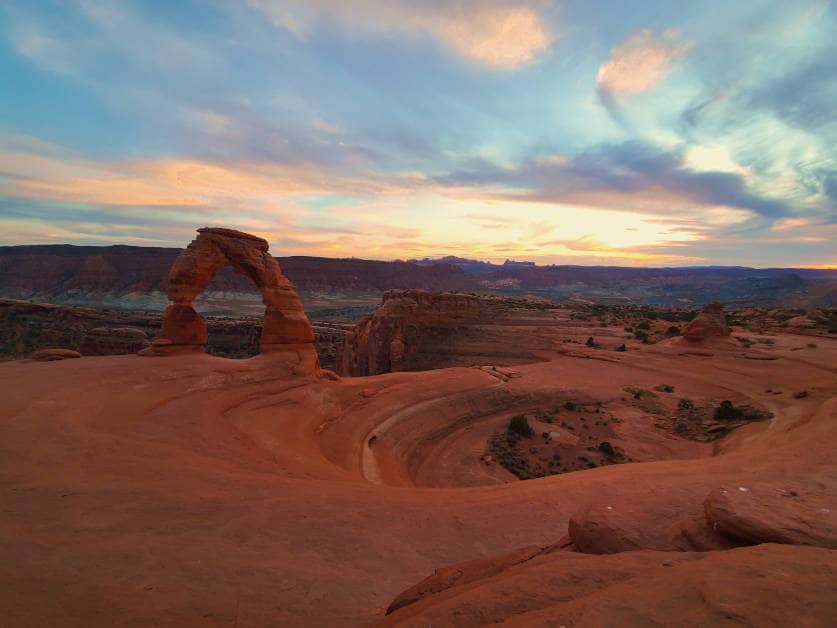
With available land in Europe non-existent for centuries, the vast openness and culture of the American West intrigued many parts of Europe. People wanted to move there.
If you think back to the dark ages, European cities were cramped and disease-infested. Dumping your dishwater onto the street below was the social norm. That was people’s vision of the past and their current reality even into the 19th century.
The aristocracy owned most of the land making it harder for upward mobility.
Therefore, the American West became an example of absolute freedom to many cultures.
Land was plentiful in the West.
Even before the glory and fame of the “Wild West,” Alexis De Tocqueville-a French aristocrat and philosopher- came to the United States in the 1830s to see America. He authored his book Democracy in America following his visit to the U.S.
Tocqueville mentioned the expanse and wild ruggedness of North America. He even noted how sunlight could not penetrate the thick forests dotting the East Coast.
The visual cues in the book resemble openness and the freedom from authority that most view the West.
The Wild West
What feelings do you associate the Wild West with?
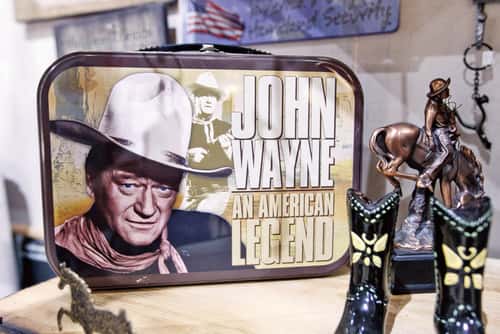
I usually picture those old black and white John Wayne westerns. Everyone seemed so carefree roaming around those great vistas.
But the “The Wild West” got its name somehow, right? It has the name “wild” in it for a reason.
I bet some feel the following when they hear the term “Wild West”:
- Danger
- Adventure
- Apprehension
Those are positive and negative feelings what absolute freedom of the West might feel like. Not having restrictions gives a feeling of the unknown. It can be scary.
The Wild West’s reputation is one of:
| Positive | Negative |
| Individualism | Unsafe |
| Manliness | Cruel |
| Freedom | Lawlessness |
| Endless Possibilities | Fiction |
For a moment, let’s focus on the positive feelings.

John Wayne became an iconic symbol of manliness and American freedom. He knew his pop culture impact filming those westerns. The Westerns became the ultimate symbol of unrestricted freedom.
Wayne had so much influence that Nikita Khrushchev-Communist leader of the Soviet Union– requested to meet the urban legend of John Wayne. When Khrushchev landed in California during his visit in 1959, he wanted to meet John Wayne and see Disneyland.
No one can debate the imagery that John Wayne gives to absolute freedom. John Wayne didn’t care what most people thought about him. His carefree attitude made him an urban legend.
What do the negative feelings of absolute freedom in the “Wild West” represent?

The haters would say that absolute freedom represents more negative emotions than positive ones.
I would tell them that these emotions don’t matter because absolute freedom in the modern world is only theory.
But… I will give you an analysis.
Were there shootouts in the West? Did violence make people question the “freedom” of the Wild West?
Yes, there were some shootouts during the “Wild West” era. That’s where the feelings of lawlessness and danger originated.
If you want to explore more Western gunfights, you can find some reading here.
Most of the gunslinging occurred between dueling opponents protecting honor or law enforcement protecting society from gangs robbing stagecoaches full of gold.
On a scale of 1 out of 10, dueling ranks as a 10 to not being accepted as a social norm. It was taboo in the past and today.
Therefore, the contribution that dueling counted toward the overall scale of making feel people unsafe is negligible.
Dueling only affected the 2 individuals participating. The spectators stupid enough to watch the duel promoted the practice making themselves feel unsafe.
If law enforcement battled gangs, was the Wild West lawless? What metrics do you use to measure lawlessness?
Sheriffs battling stagecoach gangs are no different than local police agencies today sending the swat team to arrest known gang members.
The weapons used have advanced, but the theory behind the use of force has not changed. Policing theory is to arrest the bad guy to prevent his lawless nature.
The negative emotions associated with the Wild West are irrational. The emotions do not fit the definition of absolute freedom theory.
During the Wild West era, there was still a government to administrate justice with a sheriff.
I choose the Wild West as an example to display “absolute freedom” because it is a period in history that most people can relate to through movies or media.
You would have to go back before the Romans or Greeks to find conflict with the definition of absolute freedom. Remember, we are talking about recent history. The founders view represents civilized society view of freedom, not chaos and destruction.
Conclusion
Absolute freedom is a view of freedom that society sees as having no structure to modern civility.
Most people view absolute freedom as the whole world pillaging and plundering their way to achieve their desired outcome. There is nothing that stands in the plunder’s way since there aren’t any restrictions.
Many politicians will use people’s fear with the absolute freedom theory to promote laws that will restrict your basic liberties. For heaven’s sake, don’t let them. If you hear politicians start quoting age-old cliches, that’s your hint of their intended outcome.
Liberty haters consider the lawless nature of the “Wild West” an example of the chaos that absolute freedoms brings. However, we know that true absolute freedom hasn’t existed since before the times of the Romans or Greeks.
What are your views of absolute freedom?
